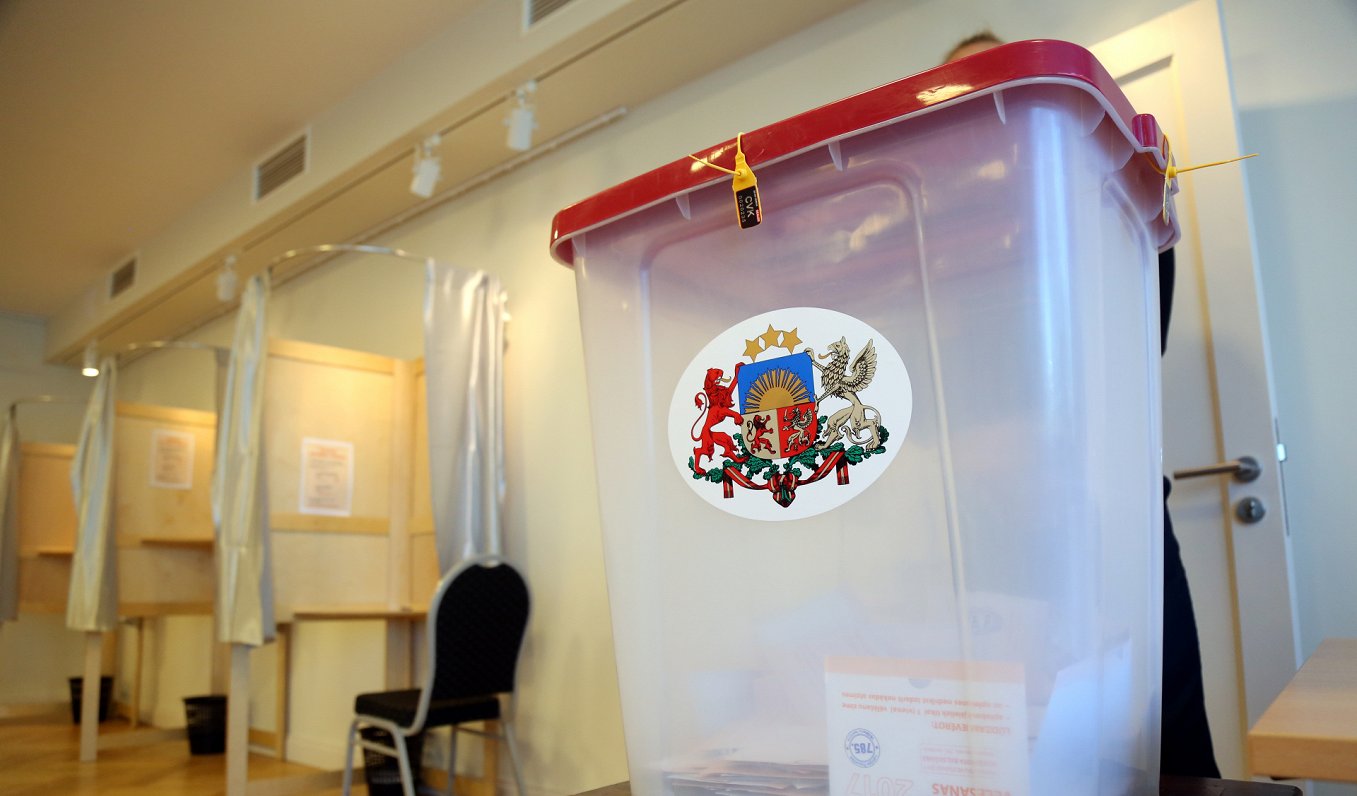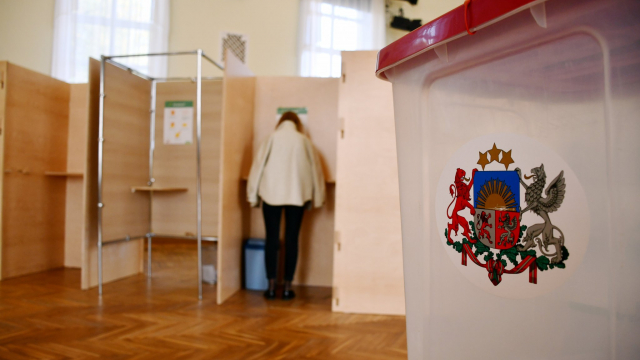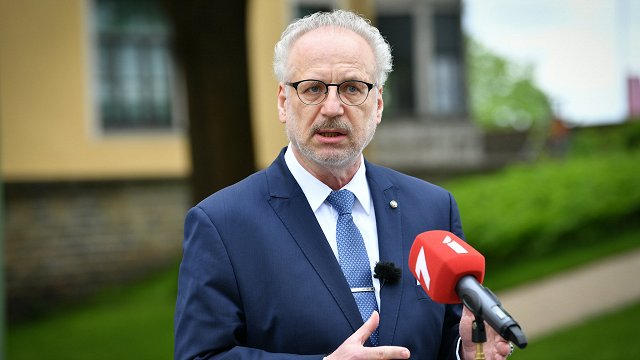While half of all candidates are between 41 and 60 years old, there are just thirty-one candidates under the age of 20 competing in the nearly 5,600-person strong nationwide field. LSM spoke to two of the youngest candidates running for city council to hear their takes on being a teenage political candidate in 2021.
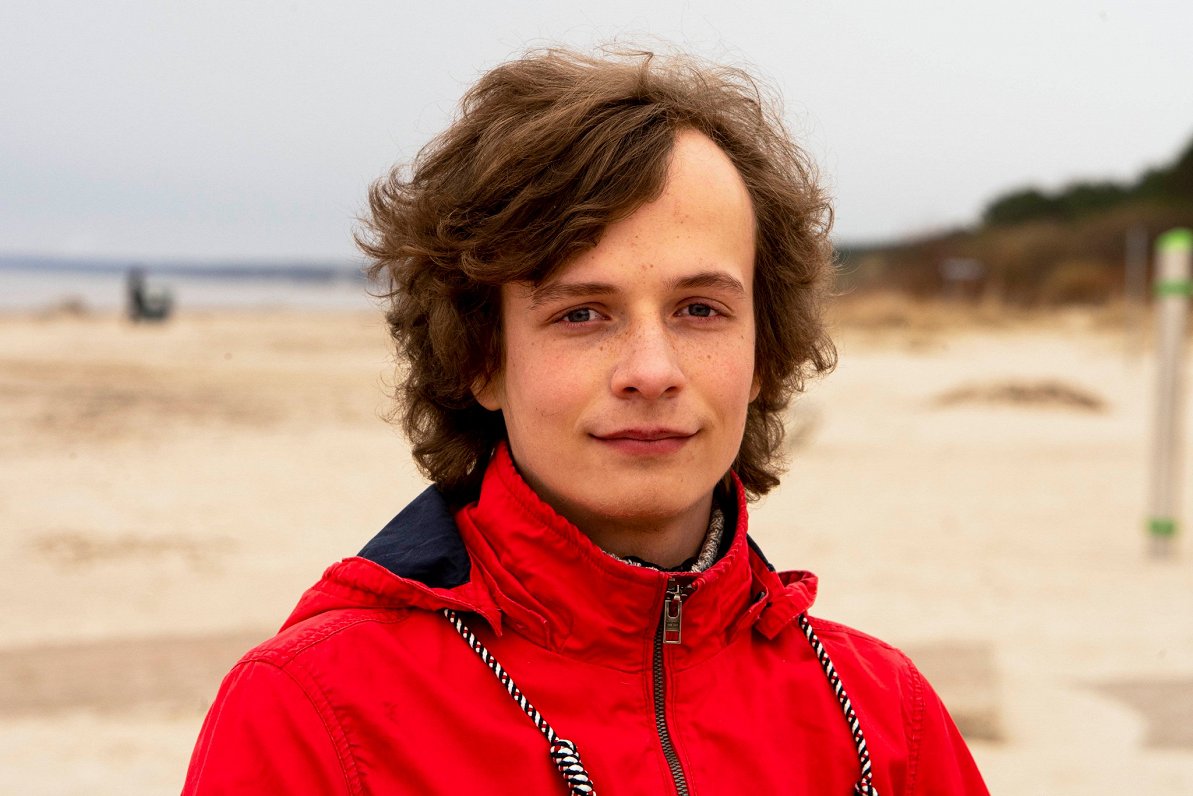
19-year-old Rūdolfs Strazdiņš is running for the Progressives in Jūrmala, focusing on issues regarding infrastructure and public accountability. Having joined the centre-left political party last year, he seeks to use his run to become more actively involved in politics, saying:
“I like to talk about politics, and sometimes complain, but there’s no use in just talking about it, you should also do something.”
He criticises the city’s incumbent leadership and goes after the scandal-ridden mayor Gatis Truksnis of the Union of Greens and Farmers, saying that “There is a sense of hopelessness, not only among the youth, but among everyone, because the city council is basically untouchable. There’s endless corruption scandals, personal scandals involving the mayor, and there’s mismanagement of funds.”
Forgotten suburbs
He thinks that the local government is too focused on the tourist-heavy center of the city and neglects the city’s suburban neighbourhoods when it comes to infrastructure. Also the modes of public transport as well as pedestrian and bike infrastructure are all, according to Strazdiņš, lacking proper funding.
“Accessibility is a big issue. It isn’t overall as bad in the city centre, but if you go further from the city centre, it is basically stuck in Soviet times. There hasn’t been any major reconstruction. It is quite bad. Even the newer projects are still not up to the highest standards of quality.”
Strazdiņš says he is mainly running to demand change. “People don’t think it’s possible to change, and I’m here to prove them wrong,” he explains. “It’s very important to get them (young people) to vote for the first time. The current council hasn’t done enough for the youth. People are, sadly, starting to lose faith in democratic institutions all across Europe and the world, and that’s quite sad, but the only way to improve these institutions is to participate for yourself. You can’t just sit back, do nothing and say ‘oh, the government is doing so and so, and I don’t like it’. You must participate yourself to improve it.”
Despite this, he says he does not expect to be elected to the city council, where each seat represents approximately 3,900 inhabitants.
“I don’t think many people would be swayed by me, but even if I sway one person, it’s a success.”
At the other end of the political spectrum, Edijs Jakubausks is running for the national-conservative National Alliance in Saldus Municipality, and hopes to use his debut political candidacy as a springboard to launch a longer political career.
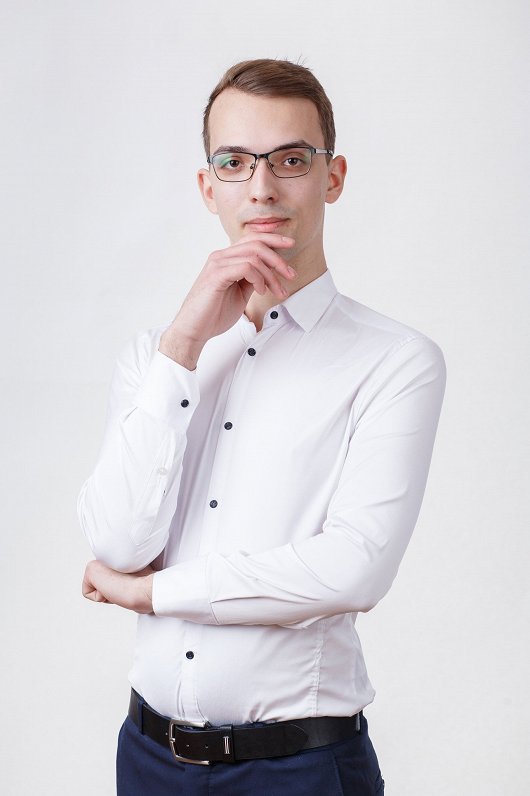
Serving as president of his high school’s student board and having participated in the national Youth Parliament program for two consecutive years, he has a clear conviction that politics is the career for him.
“I have wanted to be a politician from age 16. I just want to make people’s lives better. It’s why I want to be a politician. It’s my dream to one day become president of Latvia. The only thing I can do is work for my nation, and it’s what I want to do. I think I will reach this dream,” he says.
The 19-year-old, who identifies as conservative and ‘a big patriot’, hopes for more cultural events for the youth in his municipality.
“There are not enough activities for young people,” he says, explaining that the events hitherto held in the area have mostly aimed at attracting older generations. Living in the village of Druva, he describes how he usually feels bored as there are not many cultural events for young people taking place.
Something to do
”My friends are saying, too, that they have nothing to do. It’s the biggest thing I want to fix, because it’s sad,” he says. There is lots to be done regarding culture, starting with building a new culture center and hiring committed staff to organize cultural events, he says, adding that he thinks Saldus Municipality can one day become the best Latvian municipality on the culture scene.
He also mentions infrastructure as one of his main priorities, decrying its dire condition. Giving an example, he tells about a road from Saldus to the village of Satiķi that had undergone extensive repairs just a few years ago but is already back to being in terrible condition.
“After this winter, this road looks like after a war. It’s a catastrophe. It’s impossible for a car to drive on,” he explains.
Jakubausks hopes for more inclusion of citizens, explaining that in the election programme of his local branch, the National Alliance seeks to create local ‘citizen councils’ in the municipality’s local areas for citizens to voice their opinions.
“We want to make small councils in the villages where people can say their ideas and make these ideas real. I think it’s a good idea to include people in this process, and make our lives better because they are involved,” he explains.
Despite younger people being relatively rare on the ballots, both candidates agree that being younger is not a handicap.
“I don’t think it’s hard being a candidate because I’m young. Of course, it’s hard to get into the city council, but I don’t feel that people say ‘Oh, you are too young, you are nothing.’ No, people are happy, and those who know me say that ‘It’s the place for you, Edijs’," says Jakubausks.
"I think that young people need to get involved in the political process, because they see things a little bit differently. It’s good that we can see things from the other side that older people may not,” Jakubausks says.
Similarly, Strazdiņš also notes support from peers and party colleagues as a main motivator: ”I didn’t initially intend to run, but I received support from Jana, who is the leader of our list, and Sarmīte, who actually, funnily enough, was the principal of the previous school I attended. So that was quite encouraging,” he says.
Surprising similarities
While their official party positions are different on many issues, the two candidates reveal that when it comes to identifying what the main issues are, there is a surprising amount of similarity. Agreeing on issues like infrastructure and youth engagement, the candidates’ main disagreements are on ideological issues such as LGBT rights.
Strazdiņš and Jakubausks, while being from two – at least on paper – very different parties, both agree that the status quo is not tolerable, and the young generation must lead the change. When June 5 comes around, we will see if young Latvians show up to case their votes for those brave enough to be on the ballot papers.
You can read more about the June 5 local elections, including party lists, manifestos and information on voting procedure on the the Central Election Commission website: https://www.cvk.lv/en/elections/local-elections/local-elections-2021
